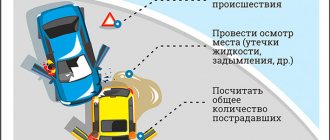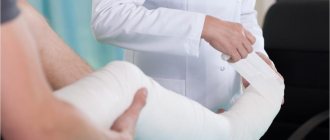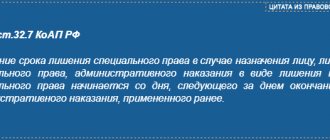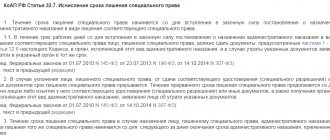Russia is one of the world leaders in the number of injured and killed in road accidents. In 2021 alone, road accidents claimed 18 thousand lives. This is the population of a small town. The number of non-fatal victims is 215 thousand. The problem is aggravated by the fact that most of the dead and injured are young and healthy people before the accident.
Those responsible for road accidents bear several types of liability - administrative, civil, criminal. A variety of penalties are provided for drivers and vehicle owners - from small fines for causing damage to health to long-term isolation from society if there are serious consequences.
An advantageous offer from the partners of our portal - Terem Loan! Apply for a loan in the amount of up to 30 thousand rubles for a period of up to 30 days.
100% approval!
Get money
Types of liability
At the legislative level, 3 types of liability are established in case of an accident causing harm to health and life:
- civil;
- administrative;
- criminal
Civil liability consists of compensating harm to injured persons and rests with vehicle owners. It occurs under any circumstances, regardless of whether the driver is guilty of causing an accident or not, due to the fact that the car is defined by the Civil Code as a source of increased danger (Article 1079 of the Civil Code of the Russian Federation).
Administrative and criminal liability depends on the type of offense (crime) committed by the guilty person. These types of liability do not apply at the same time. The degree of guilt and type of punishment are determined taking into account the consequences of the accident.
These types of liability are borne by direct participants in the accident, as well as by persons responsible for the circumstances that led to the accident. Most often, vehicle drivers are responsible for accidents with injuries and deaths.
How do traffic accident trials work?
Any person is interested in how court proceedings in cases related to road accidents proceed. It was already noted above that there are three possible scenarios for the development of events.
- If we are talking about challenging the protocol on a traffic accident, the litigation relates to administrative proceedings. When considering such cases, the judge finds out the circumstances of the accident: how it all happened, who was there and where at that moment, etc. It is on the basis of all the facts established at the meeting that a decision is made about whether the inspector was right or wrong, whether the person identified as guilty is really guilty driver. Of course, there are chances to restore justice if an inspector illegally applied punishment to an innocent driver. But we should not forget that, for example, in relation to drunk drivers, the courts take a very tough position. The percentage of successfully challenged protocols under this article of the Code of Administrative Offenses of the Russian Federation is negligible.
- All requests for monetary compensation are considered by civil courts. They are also called courts of general jurisdiction. Most often, these are claims by drivers against their insurance companies, who save money and pay an insufficient amount to repair the car. What are the features here? Since the demands are monetary, their size will have to be justified, and documented. To receive an insurance payment, an appraiser's report on repair costs or a receipt from a car service center is required. If you demand money from the culprit for treatment, provide copies of medical papers. There is only one exception - moral damage, in which case it is assessed by the court.
- The consideration of criminal cases is significantly different, since the fate of a person who has committed an accident with grave consequences is being decided. The criminal proceedings themselves, by virtue of the law, last longer; the court scrupulously clarifies all the circumstances of the incident, interrogates both participants and witnesses. Issues of interpretation of the law in relation to a specific situation play a large role. Therefore, the main advice for such cases is that you should not refuse the professional assistance of a lawyer.
Any of these car accident lawsuits consists of the following stages:
- filing an application (claim, complaint), in criminal cases - transferring the indictment with the case to the court;
- the trial itself: establishing facts, interrogations, examinations;
- judicial act (decree, decision or sentence).
Regardless of the essence of the road accident case, the court always examines the actual circumstances of the accident. They determine the future fate of the parties' claims.
Causing grievous bodily harm in an accident
This is one of the most serious situations. Serious bodily harm in an accident is a reason for criminal prosecution of the culprit of the accident. The case is initiated based on the results of a forensic medical examination. According to severity, harm is divided into:
- easy;
- average;
- heavy
The last degree is the most dangerous for humans. Serious harm is a high probability of death during an accident or some time after it, loss of vital body functions.
The qualifying signs of grave harm, according to clause 4 of the Rules for determining the severity of harm caused to human health, approved by Decree of the Government of the Russian Federation of August 17, 2007 No. 522, are:
- harm dangerous to human life;
- loss of vision, speech, hearing or any organ or loss of organ functions;
- abortion;
- mental disorder;
- drug addiction or substance abuse;
- permanent facial disfigurement;
- significant permanent loss of general ability to work by at least one third;
- complete loss of professional ability...
To classify harm to health as serious, it is sufficient to have at least one of the injuries that threaten a person’s life or lead to a dangerous condition, including:
- coma;
- shock 3-4 degrees;
- excessive blood loss;
- cardiac, renal, respiratory failure;
- a head wound penetrating the skull or an intracranial wound;
- cervical injuries;
- spine fracture;
- open and closed chest injuries;
- multiple rib fractures;
- penetration into the abdominal cavity;
- loss of vision, speech, hearing;
- loss of any organ, etc.
The full list of medical criteria for serious harm is contained in paragraph 6 of the Appendix to Order of the Ministry of Health and Social Development dated April 24, 2008 No. 194n.
Nuances of judicial practice
In Russian courts in cases of road traffic accidents, Article 264 is widely used.
73 of the Criminal Code of the Russian Federation “Conditional sentence”. Very often, drivers who commit an accident are unintentionally given a suspended sentence. Judicial practice, if serious harm to health is caused in an accident, also considers the consequences of its decision - what will happen to the perpetrator in the future if he is punished with an undeserved maximum sentence. A number of factors influence this decision:
- Age of the accused. In the Russian Federation there is no law prohibiting elderly people from driving. If the defendant is 70 years old, this will most likely be one of the reasons for probation.
- Social characteristics. Who the driver is, how he behaves in society, how respected he is by others - another plus to the mitigating court decision.
- Place of work, position. Everything is covered here. For example, if a person works as a driver, then he bears double responsibility for those whom he drives.
- Characteristics from the place of work.
- Awards, especially federal ones, certificates, encouragement.
- Petitions from the place of work, trade union, social activities.
- Petition from the victim. This usually happens when the incident is the victim’s fault, or the parties have settled the issue through reconciliation, or the perpetrator and the victim are very close relatives.
- Pre-trial settlement of the issue and the absence of claims from the injured party.
The court will compare all the facts that mitigate or aggravate the position of the perpetrator. It will take into account that the parties resolved the issue peacefully out of court. But the sentence, if the person died, will correspond to the fact of the crime, taking into account external influences.
The judge decides the issue of compensation for damages very strictly. Sometimes people even want to profit from their own grief.
What does a driver face for an accident with serious bodily injury?
Such an offense can be punishable by up to 15 years. The punishment for causing grievous harm in an accident is established by the Criminal Code of the Russian Federation.
The type of sanction is determined by the court individually and depends on:
- on the condition of the driver at the time of the accident;
- assessing the severity of the harm caused;
- the presence of mitigating or aggravating circumstances.
Liability measures for serious injury to health due to negligence (Article 264 of the Criminal Code of the Russian Federation) are presented in the table. The choice of a specific punishment is made by the judge.
| Types of sanctions | |||
| Restriction of freedom | Forced labor | Arrest | Deprivation of liberty |
| Part 1 Art. 264 of the Criminal Code of the Russian Federation: Violation by the driver of traffic rules or vehicle operating rules, resulting in serious harm | |||
| up to 3 years | up to 2 years + deprivation of the right to occupy a position positions or engage in op. activities up to 3 years or without it | up to 6 months | up to 2 years + deprivation of the right to occupy a position positions or engage in op. activities up to 3 years or without it |
| Part 2 Art. 264 of the Criminal Code of the Russian Federation: An act provided for in Part 1, committed while intoxicated or involving leaving the scene of an accident | |||
| up to 5 years + deprivation of the right to occupy a position positions or engage in op. activities up to 3 years | from 3 to 7 years + deprivation of the right to occupy a position. positions or engage in op. activities up to 3 years | ||
| Part 3 Art. 264 of the Criminal Code of the Russian Federation: An act provided for in Part 1, resulting in the death of a person | |||
| up to 4 years + deprivation of the right to occupy a position positions or engage in op. activities up to 3 years | up to 5 years + deprivation of the right to occupy a position positions or engage in op. activities up to 3 years | ||
| Part 4 Art. 264 of the Criminal Code of the Russian Federation: An act provided for in Part 1, committed in a state of intoxication or or associated with leaving the scene of an accident and resulting in the death of a person | |||
| from 5 to 12 years + deprivation of the right to occupy a position. positions or engage in op. activities up to 3 years | |||
| Part 5 Art. 264 of the Criminal Code of the Russian Federation: An act provided for in Part 1, resulting in the death of 2 or more persons | |||
| up to 5 years + deprivation of the right to occupy a position positions or engage in op. activities up to 3 years | up to 7 years + deprivation of the right to occupy a position positions or engage in op. activities up to 3 years | ||
| part 6 art. 264 of the Criminal Code of the Russian Federation: An act provided for in Part 1, committed while intoxicated or involving leaving the scene of an accident and resulting in the death of 2 or more persons | |||
| from 8 to 15 years + deprivation of the right to occupy a position. positions or engage in op. activities up to 3 years | |||
The presence of intent aggravates the position of the culprit. An intentional traffic accident resulting in serious injury to health is considered under Article 111 of the Criminal Code. The maximum penalty under this article is 15 years of imprisonment with or without restriction of freedom for up to two years.
Judicial practice shows that when making a decision determining the punishment for the culprit, the position of the accused has a great influence. Sincere repentance and voluntary compensation for harm to the victim, the absence of claims from the injured parties make it possible to change the measure of responsibility to a more lenient one and mitigate the punishment.
An example from judicial practice
Driver K., while driving a vehicle, violated the traffic rules, which led to an accident, which resulted in the death of citizen F. At the court hearing, the offender did not admit guilt. According to Part 3 of Art. 264 of the Criminal Code of the Russian Federation, the court sentenced the driver of the vehicle who violated the traffic rules to 1 year and 6 months of imprisonment to be served in a penal colony with deprivation of the right to engage in driving vehicles for 2 years.
Citizen K. filed an appeal to a higher court. During the hearing, he renounced some of his objections and fully pleaded guilty to the accident. The Court of Appeal granted the defendant's complaint in part, taking into account the admission of guilt, compensation for moral damage, lack of criminal record and positive characteristics. The imprisonment was suspended and a probationary period was established.
The assistance of a human rights defender is the most important point in a traffic accident trial
Any of the parties to the accident (both the accused and the victim) needs to protect their interests in court. When hearing a case, a number of nuances and features are revealed, so you need to have excellent knowledge of jurisprudence in order to competently protest them or, conversely, argue your position. In addition, you may be faced with the need to file a motion or complaint, challenge a court's decision on your matter, obtain the compensation you want, or prevent an unreasonably harsh penalty from being awarded. Therefore, it is impossible to do without the active assistance of a lawyer in automobile law.
2
0
1
0
0
0
Causing minor harm to health
Medical criteria for minor harm are short-term health impairment (up to 3 weeks) and minor permanent disability (less than 10%). A health disorder is understood as a temporary impairment of the functions of human organs and systems.
Not all injuries are considered minor injuries. Superficial damage to the skin - bruises, abrasions, contusions, if they do not lead to loss of ability to work and health problems, are not regarded as causing harm.
Due to the fact that ambulance doctors and traffic inspectors cannot assess injuries on the spot, at first all traffic accidents with injured people are automatically classified as mild accidents. After this, upon the victim’s visit to a medical facility, doctors assess the degree of harm caused.
Established deadline for considering road accidents with victims
As with the investigation of an accident without injuries, the investigation period for an accident with injuries can reach two months. However, during this period it is not always possible to determine the extent of damage caused to health, so the investigation is sometimes extended to six months.
During this time, investigators:
- All participants in the incident are interviewed.
- Testimony of witnesses is taken.
- Conducting examinations.
It is necessary to understand that when an ambulance is called to the scene of an accident, even if the victim has only one abrasion, until the investigation is completed, a decision from the traffic police, and therefore insurance payments, will not be received.
What will be the light damage in an accident in 2021?
Punishment for causing minor harm to health after an accident is imposed under Article 12.24 of the Code of Administrative Offenses of the Russian Federation. The degree of guilt of the participants is established as a result of an administrative investigation.
The minimum sanctions are an administrative fine from 2,500 to 5,000 rubles. It can be imposed by officials of the road inspection - the head of the traffic police, his deputy, the commander of the traffic police regiment and his deputy. (Article 23.3 of the Code of Administrative Offenses of the Russian Federation). In court, a driver can be deprived of his license for a period of 1 to 1.5 years.
Criminal liability may arise if there is intent to cause minor harm (Part 1 of Article 115 of the Criminal Code of the Russian Federation). Possible sanctions:
- fine up to 40 thousand rubles. or in the amount of the convicted person’s earnings for a period of up to 3 months;
- compulsory work up to 480 hours;
- correctional labor up to 1 year;
- arrest up to 4 months.
In the presence of aggravating circumstances (committing a crime with hooligan motives, as part of an organized group, with the use of weapons, etc.), the maximum punishment is imprisonment for up to 2 years. However, due to the difficulty of obtaining evidence of guilt under this article, it is used very rarely.
Average severity of harm to health
In such a case, the punishment may be limited to a fine or be more severe - the culprit will be sentenced to imprisonment. It all depends on the circumstances. Causing moderate injuries is a non-life-threatening loss of health and ability to work, the rehabilitation period for which exceeds 3 weeks. It is characterized by the following medical criteria (clause 7 of Order of the Ministry of Health and Social Development 194n):
- Temporary dysfunction of organs and (or) systems (temporary disability) lasting more than three weeks (more than 21 days)…
- Significant persistent loss of general ability to work by less than one third - persistent loss of general ability to work from 10 to 30 percent inclusive.
Moderate injuries can only be determined after a forensic medical examination, which is often only possible after undergoing a course of treatment.
Punishment for moderate injuries
When injuries of this nature are caused, the future fate of the perpetrator largely depends on whether there were aggravating circumstances in the accident. For moderate harm to health, the driver is liable under the same Article 12.24 of the Code of Administrative Offences, the options are as follows:
- Administrative fine from 10 thousand to 25 thousand rubles.
- Deprivation of a driver's license for a period of 1.5 to 2 years.
Intentional causing of harm results in criminal liability. Punishment for moderate severity in an accident is established under Article 112 of the Criminal Code of the Russian Federation. It is appointed by the court in one of the following options:
- restriction of freedom up to 3 years;
- forced labor for up to 3 years;
- arrest for up to six months;
- imprisonment for up to 3 years.
In the presence of aggravating circumstances, the maximum sentences increase. The accused may be imprisoned for up to 5 years.
How to determine severity
Evaluation activities can only be carried out by a limited number of persons. Establishing the severity of injury to health in an accident is carried out by medical institutions or individual entrepreneurs who have a license, which includes work on conducting a forensic medical examination.
The severity of harm caused to human health is determined according to the Rules approved by Decree of the Government of the Russian Federation dated August 17, 2007 No. 522. The medical criteria that guide experts when making decisions are approved by Order of the Ministry of Health and Social Development dated April 24, 2008 No. 194n.
Appendix to the Medical Criteria - Table of percentages of permanent loss of general ability to work as a result of various injuries, poisoning and other probable consequences caused by an accident.
Let us give examples of the severity of harm caused to health.
| Qualification of the severity of harm to health | How to determine |
| Heavy |
|
| Moderate |
|
| Easy | Short-term health disorder (less than 21 days). Loss of ability to work is less than 10% |
Stages of a forensic medical examination:
- Study of medical documents related to the incident (medical records of the victim, records of emergency doctors called to the scene of the accident, photographs, videos recording the details of the collision, protocol on administrative violation);
- Inspection and interview of the victim;
- Conducting additional medical examinations if internal injuries are suspected;
- Request additional documents if necessary;
- Registration of examination results.
If the person being examined had illnesses or injuries before the accident, only the damage received in the accident is taken into account in the assessment. To assess the consequences of an incident that led to mental illness, drug addiction, substance abuse, psychiatrists, narcologists, and toxicologists are included in the commission of forensic experts. If a pregnancy is terminated as a result of an accident, the opinion of an obstetrician-gynecologist is taken into account.
The results are certified by the signature of the expert or members of the commission.
Punishment for causing serious harm
As a result of the accident, the culprit takes responsibility to the country and to the people affected by his actions.
Note! Even when, as a result of an accident involving a pedestrian, the driver did not violate traffic rules, the law often requires reimbursement of the costs of medical care to the victim from him.
The culprits of the accident can first be identified by traffic police officers, who record all the facts related to it and draw up a protocol. And the judicial authorities determine the culprit and the extent of his responsibility. The court has the right not only to impose fines, but also to confiscate the driver’s license, deprive the person of liberty and order him to pay moral damages to the victim.
The procedure for compensation for damage to health in an accident
The law provides for payment for treatment. Compensation for damage to persons injured in an accident is carried out in accordance with the Civil legislation of the Russian Federation. It includes full compensation for the costs of treatment, the purchase of medicines, funeral payments, compensation of average earnings for the period of incapacity, as well as mental suffering received during the accident (moral damage).
You can read more about drivers' liability for compensation for personal injury in our article.
How to prove your innocence
Perhaps the most pressing question is how to prove your innocence . Most often, drivers are interested in what to do if they do not agree with the traffic police protocol in case of an accident. For example, someone was unfairly blamed for an accident. The procedure should be as follows:
- Already at the stage of drawing up the protocol, you must inform in writing of your disagreement with the conclusions of the traffic police inspector. Usually objections are written on the protocol itself. It is advisable to present your arguments clearly, to the point, without fluff. This will help in the future.
- You will have to go to the traffic police department to consider your administrative case and there also state what you disagree with and for what reason. All these explanations must be recorded in the case materials.
- If, nevertheless, the decision was made in accordance with the initial decision of the traffic police inspector, there is only one thing left - challenging the guilt in the accident in court. Here you cannot miss the deadline for such an appeal - 10 days from the day when the text of the court decision itself was received in hand. You can submit your complaint either to the inspector who made the contested decision, or (more often) directly to the magistrate’s court. There is no need to pay state duty here. In the text, it is important to highlight all the main arguments in your favor, preferably with references to laws.
- If the court also failed to overturn the inspector’s decision, there is also an appeal through the district court. A sample appeal for a road accident can be found on the website of the local court, and standard documents are usually available in the court premises on the information stand. Finally, you can simply contact a lawyer.
- The law provides for a multi-stage system of reviewing decisions made by judges. Therefore, if the outcome of the appeal is negative, you can also file a complaint with the regional (territorial, etc.) court and, as a last resort, with the Supreme Court.
Of course, it is impossible to fit all the useful information on legal cases regarding road accidents into one article. Each such case is unique in its own way and requires a careful approach from traffic police inspectors, and especially from the court. The main thing is not to be afraid to defend yourself immediately after the incident, and subsequently in all judicial instances.











